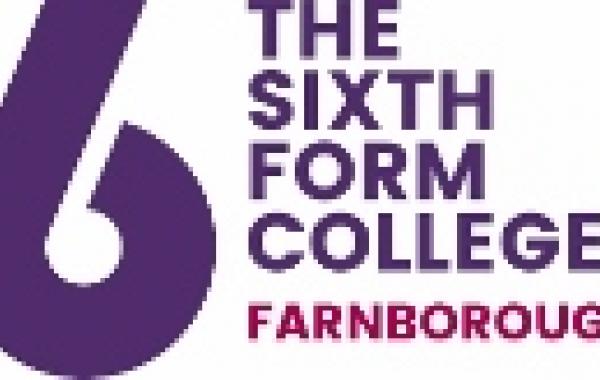Your Stories
The Sixth Form College Farnborough
7 Sep 2016
"Students could understand the relevance"
Mark Eccleston is the Numeracy Coordinator and GCSE Maths Curriculum Manager at The Sixth Form College Farnborough.
In 2016, the College introduced their first ever Numeracy Week, where over 2500 students used the National Numeracy Challenge and departments ran tailored lessons to show the numeracy in their subject and related careers.

Why did you hold a Numeracy Week?
Although approximately 95% of students at Farnborough achieved an A*-C grade at GCSE, the College is looking to create life-long numerically proficient individuals, giving them every opportunity to develop and contextualise their knowledge and skills.

At Farnborough, we want to encourage all of our students to recognise the importance of maintaining their skills throughout their education, career and retirement. Ultimately, this will help to create a population less susceptible to exploitation or manipulation through misleading statistics and ‘special’ offers.
Did many students take part?
The week revolved around a Numeracy Day, when all students were invited to test their everyday numeracy skills outside of lessons, through the National Numeracy Challenge’s online check-up. 2511 students completed the check-up and earned certificates to add to their employability profile, which students construct during their time here.
The Challenge was introduced through the tutorial programme, with a specific session on statistics within the news and how core numeracy skills can boost future prospects.
Will you keep using the National Numeracy Challenge?
Numeracy Week will now be a permanent fixture in the College’s calendar, with the Challenge primarily aimed at first-year students. Continuing students will be encouraged to reattempt the Check-Up to see if their numeracy proficiency is maintained or increased, alongside a tutorial programme that deals with essential areas, in particular, money management and budgeting.
Did students like using the National Numeracy Challenge website?
Yes, the site is very easy to use so the students were able to engage. The questions in the check-up were great as students could understand their relevance and connect with it.
Did it help them to find out areas where they needed more support?
It was more of a reminder about how important it is to work on maintaining your numeracy skills. Once GCSE maths is finished with, it’s the algebra and trigonometry which always seems to stick in people’s minds. We wanted to reintroduce the numeracy elements - which are very important. Many students were surprised by what they had forgotten since passing their GCSE, even for those who are very confident in maths.
Did you find anything unexpected or surprising?
Some of the students you think would be absolutely fine with it weren’t, and vice versa, and they did not live up to the stereotypes for how you might expect arts and science students to respond. Those in non-typical maths subjects were using their numeracy much more than they realised.
Attitudes to numeracy were also more positive than we expected. It was encouraging to see that a high percentage of students agreed with the statement that everyone struggles with maths sometimes. I had thought the overall feeling would be that you can either do it or you can’t.
Do you think that people who need to improve their maths generally know where to get help?
It was positive to see that our students feel comfortable about saying “I struggle with this and am going to ask for help.” This is not something that people generally come forward to say in UK culture, so providing a vehicle to bring about a more positive attitude towards numeracy is a good thing.
Cultivating a lifelong positive numerate attitude is an ongoing process. It’s about asking students how are you going to keep working on it and maintaining it for the next ten years and beyond.
What would you say to other colleges thinking about using the National Numeracy Challenge?
It’s a really easy way to get students engaged and discussing everyday numeracy outside of a maths class, and for reminding them that these skills will be valuable throughout their life.
We’ll definitely be using it again, hopefully with staff as well as students too!



